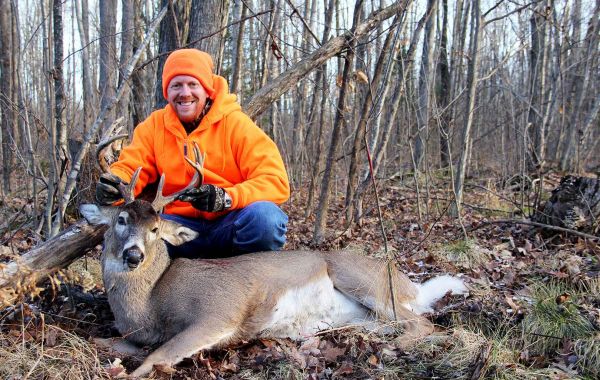- It is a very telling fact that hunters do very well every year, while some go for several years without getting a deer. Now I am not talking about those hunters who go on guided hunts, and you will see what I mean as we discuss the issue.
- I spend about twice as much time preparing for the hunt than actually hunting. Do you think those successful hunters are just lucky? When you talk to those who are consistently successful deer hunters, you will find out its not luck at all rather proper preparation for the hunt that makes them successful. Most of them are well prepared long before the season even begins. They didn't wait until the last minute to have their rifles sighted in, trails scouted, and located.
- I am scouting year-round, whether after a good rain in search of fresh tracks, making notes of new trails I find while Turkey hunting, or even marking watering spots while fishing. I utilize the newspaper or computer to check future moon phases or weekly weather conditions. I purchase a new hunting license before the coming season starts. I also make it a habit to study last year's game camera pictures and compare them with the current season pictures. One can find all kinds of topo and aerial maps on the computer these days. I pay close attention to trail indicators and potential bedding sites.
- All of this information you have ingested between seasons comes together while you are on your stand. You remember such things as where the watering holes are. If a bitter north wind comes up, you will remember where the draws or canyons are so deer can seek shelter. Your mind is always racing and putting different scenarios together. This is it; you have become a prepared hunter.
- You must do other things to prepare for the hunt before it happens to check your bow out and make sure the bowstring is in good shape. Check the cams over really well; you might even want to take it to a bow shop to get it tuned up. Make sure your muzzleloader is clean and in working order. If you have a scope on it take the time to sight it in properly. Take your rifle to the range and get it sighted in properly. I strongly suggest using the same ammunition you plan to shoot in the field while at the range. Some people use the cheaper ammunition at the range to sight their guns in. When they are in the field, they will usually use a higher grade of ammo. This ammunition will act differently than that used at the range to sight the gun in. Now that difference will not matter a whole lot on, say, a fifty-yard shot. But at a distance of a hundred to three hundred yards, it could mean the difference between a kill shot and a no-kill shot.
- The supplies you carry in the field with you can also make your hunt go better. I have a backpack packed explicitly for deer hunting. I have such things as a first-aid kit, compass (my Dad gave me), flashlight and fresh batteries, orange hunting vest, tree harness, ropes, knives, snake bite kit, and several other goodies in it.
- Throughout the season, I will use these things at least one time. A person will have to work with their pack over a couple of seasons before they get comfortable with its contents. Sometimes you don't have enough or the right supplies. A few years ago, my tree stood collapsed from underneath me, and down this big boy went. I broke or cracked ten bones. I could have used a parachute, neck brace, and a backboard that day. Sometimes it's hard to think of everything you'll need on a given hunting trip.
- Deer hunting is serious business to me. I'm providing meat to feed my family. Successful deer hunters are always looking ahead to the next hunt or the next season. As soon as deer season ends, you should begin the preparation for the next season. Now granted it might be ten months away, but get prepared. Become a serious deer hunter. Get yourself a calendar. Markdown projected scouting dates each month. Markdown the dates to plant spring food plots or fall food plots. Schedule times to go to the range. Mark target dates to get your new hunting license. It would help if you marked down target dates to have all of your broken or worn-out equipment replaced. Put in dates to hang your trail cameras and subsequent dates to check them. I assure you that your hunts will be more successful in the future by following these simple steps.
- As far as guided hunts go, they are great if you have the money. Just make sure the guide you hire has done the work to locate and track animals before your arrival. Hunting guides are like dog trainers; there are good ones and bad ones. Make sure you check the guide out before you let go of your money.








